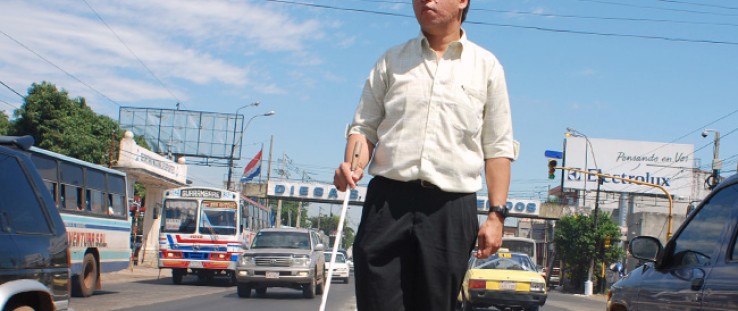 USAID and Fundación Saraki are working together in Paraguay to remove physical barriers to inclusion, to ensure that persons with disabilities can reach their jobs safely.
CREDIT: FUNDACIÓN SARAKI
USAID and Fundación Saraki are working together in Paraguay to remove physical barriers to inclusion, to ensure that persons with disabilities can reach their jobs safely.
CREDIT: FUNDACIÓN SARAKI
 USAID and Fundación Saraki are working together in Paraguay to remove physical barriers to inclusion, to ensure that persons with disabilities can reach their jobs safely.
CREDIT: FUNDACIÓN SARAKI
USAID and Fundación Saraki are working together in Paraguay to remove physical barriers to inclusion, to ensure that persons with disabilities can reach their jobs safely.
CREDIT: FUNDACIÓN SARAKI
For Paraguay, a small landlocked country in the heart of South America, a strong democracy with social justice was a dream held by many, but expressed only in hushed tones for decades. The overthrow of the 34-year dictatorship of Alfredo Stroessner in 1989 converted the dream into a possibility overnight.
Today, attaining that robust and socially just democracy is a major priority in Paraguay’s quest for development—one that citizens and organizations alike seek with growing assertiveness and commitment. It is also critical for the United States, which has seen a new period of collaboration on matters of regional security and economic partnership since Paraguay’s emergence from dictatorship.
“I believe that the fact that local organizations like Semillas work actively in democracy programs generates a much greater impact than that which a foreign consultant could generate,” says Marta Ferrara, executive director of local NGO and USAID partner Semillas para la Democracia (Seeds for Democracy). “There is more trust on the part of citizens due to the knowledge of [local] reality that we local organizations have.”
Semillas para la Democracia is an early beneficiary of a USAID local capacity-building program. In only five years, Semillas has gone from beneficiary to partner in the implementation of USAID’s democracy programs. The group’s goal is to help improve the quality of Paraguayan democracy through citizen participation, social justice, and government accountability. It is building local capacity by helping civil society organizations to promote public sector accountability, support broader alliances, and enhance their interaction with the government.
“I am very lucky to be working because it is difficult to find a job, and more so for people with disabilities. My life has changed completely since I started this new stage,” says "Beto," a young man with intellectual disabilities currently working as a program assistant at local civil society organization and USAID partner, Fundación Saraki.
In fact, all of USAID/Paraguay’s democracy activities are implemented with local organizations, not large NGOs or contractors. The core of USAID’s democracy-building efforts in Paraguay has been the fight against corruption and for more transparent institutions—working with the judiciary and the prosecutor’s office to ensure the rule of law; empowering local governments; professionalizing the civil service; and building a more inclusive democracy with equal opportunities for people with disabilities.
Strengthening Justice
The U.S. Government’s Millennium Challenge Corporation (MCC) has also worked with USAID, through the Threshold Program, to strengthen the justice system and improve internal controls in public institutions, among other activities. Paraguay’s $30.3 million Stage II Threshold Program, signed in April 2009, is a Government of Paraguay initiative to fight corruption and ensure the rule of law.
"Beto," left, a young man with intellectual disabilities currently working as a program assistant at local civic society organization and USAID partner, Fundación Saraki, delivers draft legislation to Minister Lilian Soto to increase job opportunities for people with disabilities in the public sector.
In 2007, USAID and MCC helped Paraguay’s Supreme Court transform its obsolete and inefficient disciplinary system into a modern and transparent one that offers greater access to citizens. An Office of Complaints was incorporated into the disciplinary system, with case-tracking software designed to ensure confidentiality and transparency throughout the disciplinary process. In addition, officials created a Judicial Audit Office with the ability to investigate and recommend sanctions against judges and justice-related professionals, including attorneys. “To us, it was really blessed … the creation of this department of judicial audit,” said Olga Torres de Fernandez, remembering the trial against her deceased daughter’s doctors, just recently convicted for medical negligence.
Andrea Fernandez Torres died five years ago of dengue and was neither correctly diagnosed nor treated by doctors in a private health clinic. Torres sued the doctors, but attorneys for the defendants maneuvered to create delay after delay. The trial was suspended three times. “Four and a half years [had passed] and I didn’t know where to turn,” she said.
Ten days before the statute of limitations was set to expire, Torres and her attorneys discovered the new audit unit. “We found out that there was an office which could receive [claims] and that could also act… not only against attorneys, but also against judges that also fall into these kinds of legal chicanery,” Torres said. “We requested help from the audit office through a note, and, for us, it was a true blessing that, thanks to that, the necessary diligence was immediately performed.”
The audit office investigated the case and recommended to the Supreme Court that an administrative sanction be applied to the defendants’ attorney, and that the trial proceed. The trial resulted in convictions for two of the three attending doctors.
During the past year, almost 1,200 claims have been filed at this office against judges, judicial staff, and attorneys, many of which resulted in sanctions.
Police and Customs
USAID and MCC were also behind the creation of a new curriculum for the Paraguayan Police Academy that emphasizes practical training over theory, and includes modules on ethics and human rights, which were previously only briefly mentioned.
“I realize that we are improving,” says Assistant Officer for Order and Security Santiago Espinosa of the first graduating class with this new curriculum, while pointing out that it helps improve the police force’s professionalism, and also prepares cadets to respond to citizens’ expectations.
The graduation ceremony was presided over by the Paraguayan Minister of the Interior Carlos Filizzola, who said: “This event was very important because we are giving society a new group of police.”
Underscoring the fact that in this graduating class policewomen obtained the best grade-point averages, Filizzola said: “[this] is important because it means that the police force is also in new times … today women also occupy an important role within the police forces.”
Assistant Officer for Order and Security Karen Barreto, who received the third best grade-point average in the class, added: “To me, this graduation is an enormous satisfaction because I will now be able to help my country improve.”
Another one of the institutions that instituted reforms in the fight against corruption is the customs office. In October 2011, Paraguayan Customs registered its all-time record in revenues, collecting approximately $165 million, while also registering a 250-percent increase in seizures of smuggled goods compared to 2005—from $1.6 million during that entire year to $5.6 million during October 2011 alone. DETAVE, an anti-contraband unit created with USAID assistance under the MCC Threshold Program, helped make those figures skyrocket. The unit’s major success in recent months can be attributed to the technical assistance and training received from the program, which enabled DETAVE to strategically plan larger seizures by going after the big fish in the tri-border area near the Brazilian border.
USAID also has been committed to helping minorities achieve equal job opportunities in the public and private sectors. Luis Alberto Aguilera, better known as “Beto,” is a 24-year-old man with intellectual disability, who for the past three years has been working as a project assistant at the local NGO and USAID partner, Fundación Saraki. Beto arrived at Saraki thanks to the USAID-funded Effective Labor Inclusion program, and is one of more than 200 people with disabilities to secure a job through policy changes backed by the Agency and the NGO.
“I am very lucky to be working, because it is difficult to find a job, and more so for people with disabilities. My life has changed completely since I started this new stage; it feels good being important and useful for others, that people trust you and give you opportunities,” Beto said.
Semillas para la Democracia’s Marta Ferrara believes that USAID has managed to implement a highly successful, multifaceted, and comprehensive democracy program in Paraguay. “We need to strengthen our institutions through a society with ethical values that allow for the necessary cultural change for democracy to allow all Paraguayans a more dignified life…,” she said. “The United States has been a critical and much-appreciated partner with key Paraguayan reformers as they are moving from dictatorship to a modern, democratic state,” says Rose Rakas, USAID/Paraguay mission director. “Governance remains a big challenge here, but real progress is being made. Paraguay’s institutions are getting stronger, and this is permitting it to assume an increasingly important role in addressing security and other challenges in this critical region. A democratic, well-governed Paraguay will contribute substantially to regional and U.S. national security.”







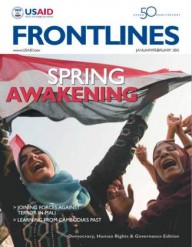

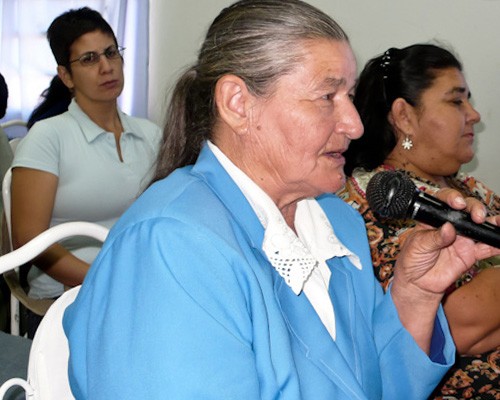
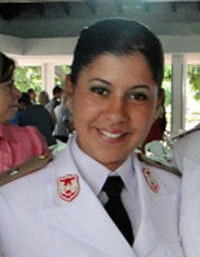
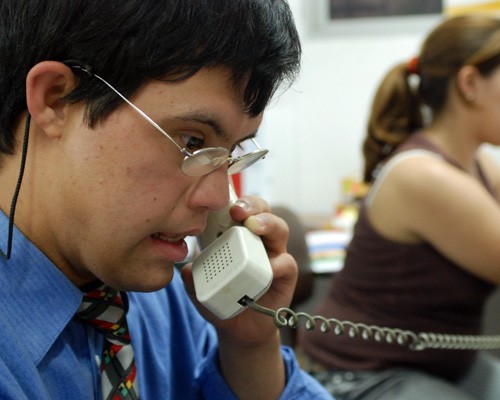
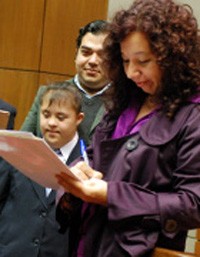
Comment
Make a general inquiry or suggest an improvement.